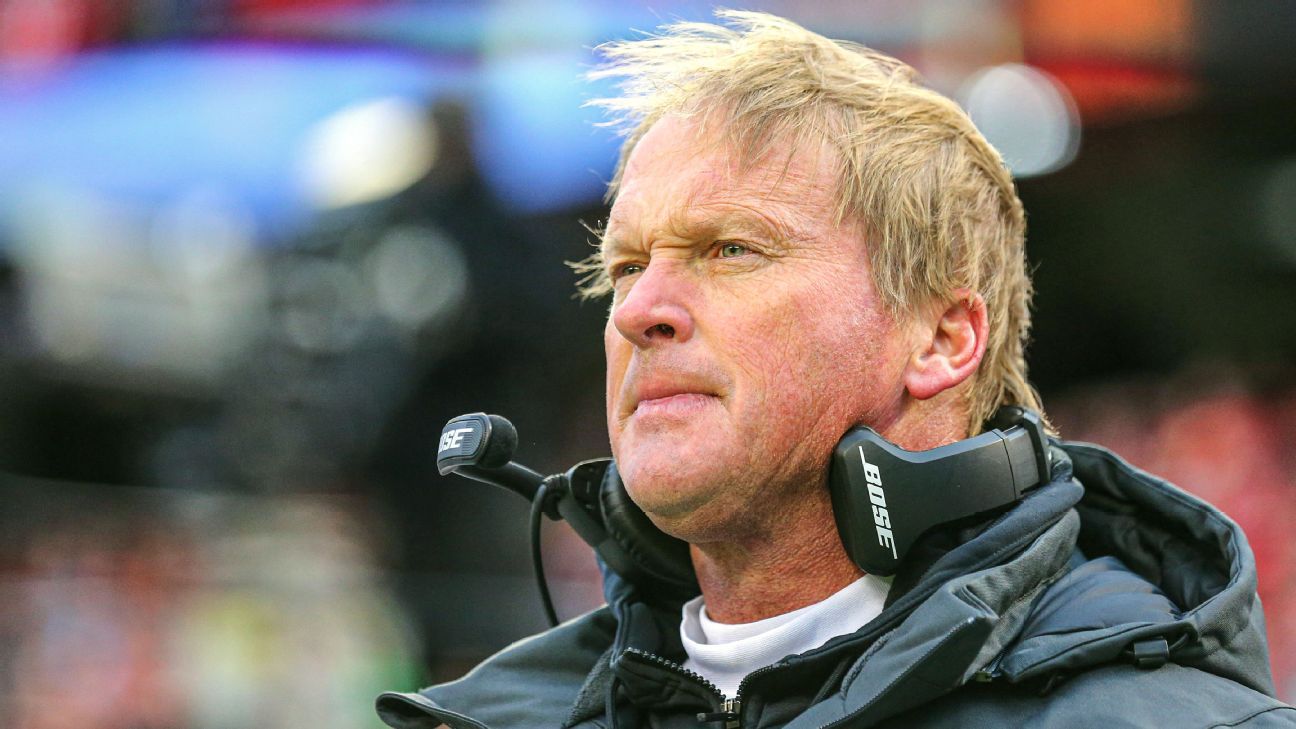- Sep 6, 2005
- 145,158
- 95,017
- AFL Club
- Fremantle
- Thread starter
- #201
The NFL is paying the price for underestimating its Daniel Snyder problem
By Sally Jenkins
Columnist
Yesterday at 11:03 a.m. EDT
The NFL’s handling of Dan Snyder will wind up as a textbook case study of a business debacle. Organizations that stonewall safety issues always get theirs in the end and pay much stiffer penalties than they had to, and Snyder is a safety issue. He’s like the Firestone tire recall of football.
The refusal by NFL Commissioner Roger Goodell and the owners who control him (those who aren’t somnambulant) to issue a written report on chronic sexual harassment in the Washington Football Team workplace is in keeping with a containment philosophy once expressed by Paul Tagliabue for dealing with scandals: “All’s well that ends.” But that philosophy assumes Snyder is just a run-of-the-mill bad businessman with nasty peccadillos, whose troubles are containable. It underestimates Snyder’s defects, and the cost of them.
There is no end to trouble with Snyder, as the league is discovering. It’s perpetual. He drags the pant cuffs of business partners into puddles of liquefied sleaze all along the way. The league thought it had ended the Washington scandal with the quashing of attorney Beth Wilkinson’s investigation, a fine of $10 million and the de facto suspension of Snyder. On the contrary, it is now more than 470 days and counting, and a seeping leak of noxious emails involving Snyder’s team has provoked the House Committee on Oversight and Reform to threaten to use subpoena power to pry open league communications and make Goodell explain his light handling of Snyder’s affairs.
Business academic Paul C. Nutt’s renowned study of infamous corporate missteps, “Why Decisions Fail,” should be required reading at the NFL headquarters right now because the league is checking every box in Nutt’s analysis of “debacles” and “blunders” by not divesting itself of Snyder as an unfit partner. Many of the explosive emails were included in Snyder’s needlessly vindictive legal filings against his former executive Bruce Allen, amid his feuding with former partners. This is what the league gets for its longtime expedient tolerance of him: blooming consequences that envelope everyone.
Organizations start with small misjudgments and wind up with massive exposure because they go for easier short-term solutions rather than recognizing a problem for what it is. It’s presumed that NFL owners fear litigation from Snyder if they attempt to force him to sell, but they miscalculated the real costs of warming this snake by the fire and will rue it.
In the late 1990s, treads on Firestone radial tires were separating and curling like snakeskins in hot weather, causing Ford Explorers and Expeditions to veer all over the highways and flip. Snyder is like that. At first, both companies denied there was a major safety issue and executives deemed a recall too expensive and unnecessary. The problem persisted for more than four years, until there had been more than 1,100 accidents and Congress convened hearings.
Does that dynamic sound anything like the NFL’s handling of Snyder?
Nutt once remarked to the Harvard Business Review that debaclers and blunderers tend to follow a distinct pattern. They “grab the first feasible choice that comes along, cram it down everyone else’s throats, point to data that supports the choice, and then battle resistance when they try to implement it.”
Again, anything familiar in that? Nutt has observed that companies make catastrophically bad decisions when they do “defensive evaluation,” sometimes spending millions on “investigations” and “studies” meant to merely find the expected and reaffirm the preferred action. Here is the critical point: Companies get in trouble when they focus on the cost of the obvious answer but do nothing to “estimate the potential costs of resisting it.”
The NFL has miscalculated the cost of resisting action against Snyder. Owners don’t like to put power moves on other owners or tell them how to run their businesses, lest they establish a precedent that can be used against them. After all, the league forgave Jim Irsay’s drug problems, frauds by Jim Haslam’s company, Bob Kraft’s groin massages and Jerry Jones’s photos with strippers; none faced severe penalties. There have been lots of dissolute owners with doormat teams. But no owner has ever discredited the league to this extent or made it more vulnerable to broad external investigation.
The fallout from Snyder’s affairs has tainted Goodell, league counsel Jeff Pash and all of his fellow owners with a hint of corruption, and it’s made them seem not just indifferent to harassment but active enablers of it. This comes just as they were trying to make headway on matters such as sexism, racism and homophobia. The league committed $250 million to a public campaign on social issues, trying to build a better image. Snyder acts as a one-man wrecking crew to all of it — and raises the question to Congress of whether his club is alone or actionable sexual harassment is rampant across the league.
The idea that Snyder’s degrading management style could be safely contained to one team was always wrongheaded. He doesn’t know how to do anything but feud and fleece, he treats people as disposables, and he never cares who might be collateral damage. His audience in Washington is utterly alienated, his attendance now dead last. If the league isn’t careful, that alienation will spread. The NFL needs to do a better cost-benefit analysis of the price of protecting him.
By Sally Jenkins
Columnist
Yesterday at 11:03 a.m. EDT
The NFL’s handling of Dan Snyder will wind up as a textbook case study of a business debacle. Organizations that stonewall safety issues always get theirs in the end and pay much stiffer penalties than they had to, and Snyder is a safety issue. He’s like the Firestone tire recall of football.
The refusal by NFL Commissioner Roger Goodell and the owners who control him (those who aren’t somnambulant) to issue a written report on chronic sexual harassment in the Washington Football Team workplace is in keeping with a containment philosophy once expressed by Paul Tagliabue for dealing with scandals: “All’s well that ends.” But that philosophy assumes Snyder is just a run-of-the-mill bad businessman with nasty peccadillos, whose troubles are containable. It underestimates Snyder’s defects, and the cost of them.
There is no end to trouble with Snyder, as the league is discovering. It’s perpetual. He drags the pant cuffs of business partners into puddles of liquefied sleaze all along the way. The league thought it had ended the Washington scandal with the quashing of attorney Beth Wilkinson’s investigation, a fine of $10 million and the de facto suspension of Snyder. On the contrary, it is now more than 470 days and counting, and a seeping leak of noxious emails involving Snyder’s team has provoked the House Committee on Oversight and Reform to threaten to use subpoena power to pry open league communications and make Goodell explain his light handling of Snyder’s affairs.
Business academic Paul C. Nutt’s renowned study of infamous corporate missteps, “Why Decisions Fail,” should be required reading at the NFL headquarters right now because the league is checking every box in Nutt’s analysis of “debacles” and “blunders” by not divesting itself of Snyder as an unfit partner. Many of the explosive emails were included in Snyder’s needlessly vindictive legal filings against his former executive Bruce Allen, amid his feuding with former partners. This is what the league gets for its longtime expedient tolerance of him: blooming consequences that envelope everyone.
Organizations start with small misjudgments and wind up with massive exposure because they go for easier short-term solutions rather than recognizing a problem for what it is. It’s presumed that NFL owners fear litigation from Snyder if they attempt to force him to sell, but they miscalculated the real costs of warming this snake by the fire and will rue it.
In the late 1990s, treads on Firestone radial tires were separating and curling like snakeskins in hot weather, causing Ford Explorers and Expeditions to veer all over the highways and flip. Snyder is like that. At first, both companies denied there was a major safety issue and executives deemed a recall too expensive and unnecessary. The problem persisted for more than four years, until there had been more than 1,100 accidents and Congress convened hearings.
Does that dynamic sound anything like the NFL’s handling of Snyder?
Nutt once remarked to the Harvard Business Review that debaclers and blunderers tend to follow a distinct pattern. They “grab the first feasible choice that comes along, cram it down everyone else’s throats, point to data that supports the choice, and then battle resistance when they try to implement it.”
Again, anything familiar in that? Nutt has observed that companies make catastrophically bad decisions when they do “defensive evaluation,” sometimes spending millions on “investigations” and “studies” meant to merely find the expected and reaffirm the preferred action. Here is the critical point: Companies get in trouble when they focus on the cost of the obvious answer but do nothing to “estimate the potential costs of resisting it.”
The NFL has miscalculated the cost of resisting action against Snyder. Owners don’t like to put power moves on other owners or tell them how to run their businesses, lest they establish a precedent that can be used against them. After all, the league forgave Jim Irsay’s drug problems, frauds by Jim Haslam’s company, Bob Kraft’s groin massages and Jerry Jones’s photos with strippers; none faced severe penalties. There have been lots of dissolute owners with doormat teams. But no owner has ever discredited the league to this extent or made it more vulnerable to broad external investigation.
The fallout from Snyder’s affairs has tainted Goodell, league counsel Jeff Pash and all of his fellow owners with a hint of corruption, and it’s made them seem not just indifferent to harassment but active enablers of it. This comes just as they were trying to make headway on matters such as sexism, racism and homophobia. The league committed $250 million to a public campaign on social issues, trying to build a better image. Snyder acts as a one-man wrecking crew to all of it — and raises the question to Congress of whether his club is alone or actionable sexual harassment is rampant across the league.
The idea that Snyder’s degrading management style could be safely contained to one team was always wrongheaded. He doesn’t know how to do anything but feud and fleece, he treats people as disposables, and he never cares who might be collateral damage. His audience in Washington is utterly alienated, his attendance now dead last. If the league isn’t careful, that alienation will spread. The NFL needs to do a better cost-benefit analysis of the price of protecting him.





